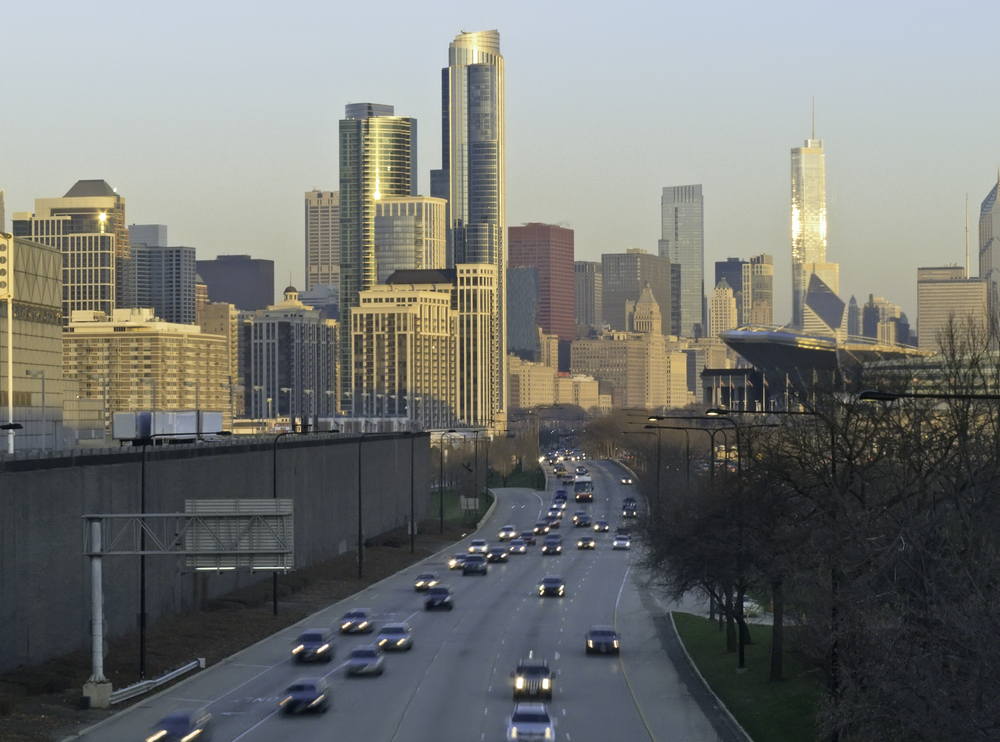Why People Are Moving to the Suburbs from Chicago

In July of 2020, PEW Research Center released a study that found that 22% of adults in the United States moved or know someone who moved because of the pandemic. Certain cities have seen an exodus of many residents and/or a much more active real estate market than was previously usual. In many cases, the trend is that Americans are moving away from large cities and into more remote locations or city suburbs. Here are a few reasons people are moving out of Chicago and into its suburbs.
The Remote Work Revolution
One of the biggest reasons that people are moving is that they can. Previously, many people chose where to live based on the location of their jobs. Since the advent of COVID-19, however, more and more executives have accepted and even encouraged a change toward a remote work model, allowing their employees to work from anywhere. Whether companies deem this work-from-home model temporary or permanent, there’s no doubt that the virus has ushered in a massive shift in professional culture. This shift has enabled many employees to live where they would like rather than where they must.
Still other companies require a part-time presence in the office, asking employees to work in person one or two days a week so that they can reduce the number of people in an enclosed space at any given time while still encouraging in-person collaboration. In this instance, employees may decide that commutes that were previously too cumbersome to make twice a day five days a week are doable with reduced frequency and reduced traffic on the road. Because of this, Chicago residents may decide that they would rather live in suburbs than in the city itself, remaining close to their place of work while enjoying living away from the business of city life.
Safety
The PEW Research Center study cited above found that 28% of adults in the U.S. who moved due to COVID-19 did so to reduce their risk of exposure. Many Americans feel safer in suburban America than in major cities since they have more “breathing room” and since public spaces like gyms are used by a smaller number of people.
Another element of safety where smaller cities tend to excel has to do with crime. For example, a March 2020 report from HomeSnacks showed that Barrington, IL, experienced 125 total crimes, or 1,214.4 total crimes per 100K people. This is 52.72% below the national average for crime rates. In Chicago, on the other hand, HomeSnacks’ March 2020 report shows 113,870 total crimes, or 4,187.7 total crimes per 100K people. This number is 63.05% above the national average crime rate. Given this information, many people feel safer living in suburban areas rather than in cities.
The Allure of City Life is Largely Gone
For those who originally moved to Chicago for its vibrant and rich culture, one of the most heartbreaking results of the pandemic is that it has largely reduced the allure of big city living, as restaurants, museums, and other attractions close down or are harder to access. The restrictions around the virus mean that it’s much harder to enjoy big city amenities like live concerts and sports events.
Reduced Noise
On the other hand, there are many positive benefits to be gained from suburban, or even rural living. Among these benefits is reduced noise pollution. Many find it surprisingly rejuvenating to reduce the constant background noise that’s often part and parcel of city living. From traffic noise to the music played by an apartment neighbor, there always seems to be something happening in the city. In suburbs, on the other hand, houses are generally more spread out, and a lower population count often equates to a reduced noise level overall.
Closer to Nature
In addition, living in the suburbs usually means closer access to nature. Even small things like having a yard rather than stepping out onto a sidewalk in the morning can open a world of delightful possibilities, from maintaining a vegetable or flower garden to having room to set up outdoor Christmas decorations to simply enjoying a little extra privacy. In general, living outside of the city also makes it easier to get to remote natural areas like state parks and forest preserves, such as James Pate Philip State Park, Independence Grove Forest Preserve, Moraine Hills State Park, McHenry Dam State Park, and more.
A Relaxed Culture
If you’ve ever driven through a small town where your fellow drivers are motioning each other to “go first” at a four-way stop, you’ll know that smaller cities are generally more relaxed than larger cities. While the hustle and bustle of city life can be alluring, it can also come with a lot of pressure. Having a chance to step into a slower pace of life and a more relaxed culture is a great way for many people to help control their stress levels.
If you're thinking about making the move to a suburb of Chicago and want to discuss building or remodeling a home, call our local construction experts. We know the market well and can help you make the right decision for your family.

